A century ago this week, Canada's Parliament burned to the ground. While no one was sure what caused the fire, at the time it seemed obvious the Germans were behind it.
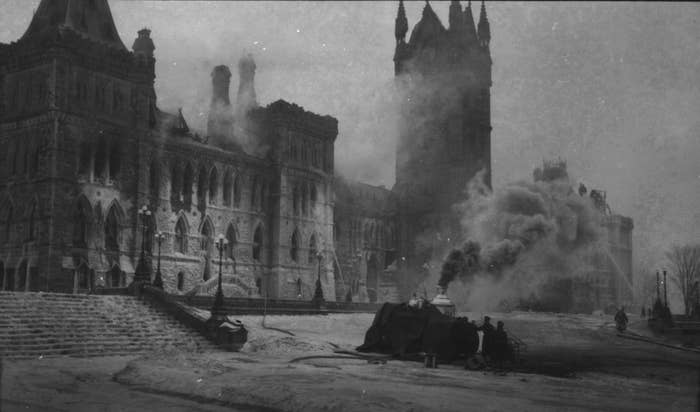
Despite being provably untrue, some Canadian media reports still point to the Germans as the possible culprits.
Here's how it all really happened.
It was the midst of the First World War, and it seemed only a German plot could explain why the fire spread so quickly. Here was a cartoon printed in the Halifax Herald shortly after.
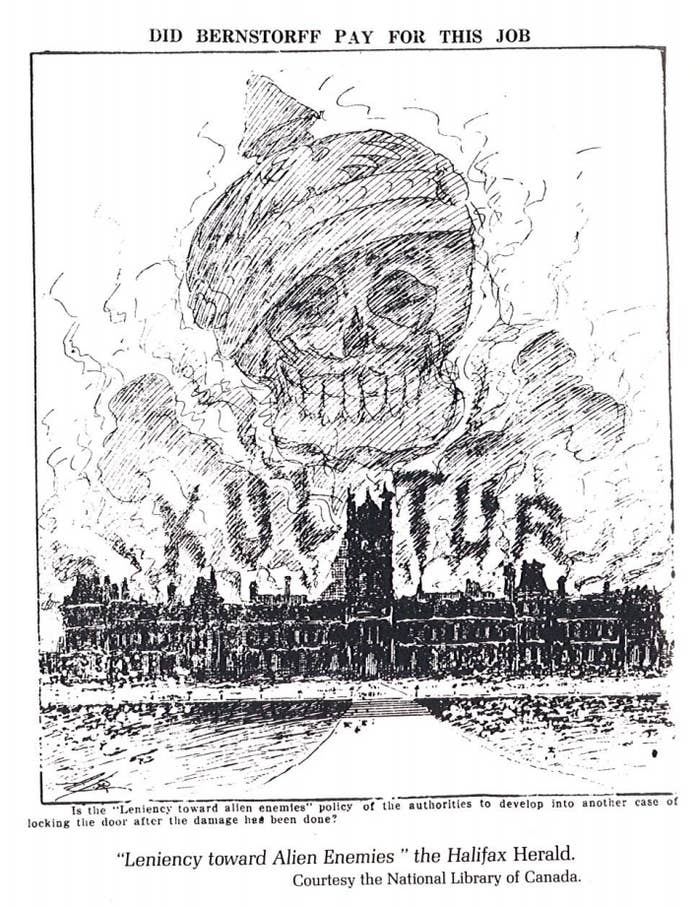
Canadian newspapers were quick to blame the Germans, but they weren't alone.
A Hawaiian Gazettte headline screamed of an "infernal machine" placed in Parliament. The Providence Journal in Rhode Island wrote that before the fire it had received a leak from the German embassy that the attack was being planned, and had warned the police. The New York Times picked up the story.
"DISASTER IS LAID TO GERMANS" the Times reported in a separate story. "Entire Dominion is Roused and a Marked Increase in Re-Cruiting Results."
The paper also recounted the arrest of a suspect in the "fire plot," reporting officials had taken a "foreigner" off a train for questioning.
In fact, it was a Belgian tourist they detained.
Overseas, one London paper wrote of "German outrages" within Canada's borders. Another speculated the "wicked and senseless" outrage would steel Canada's determination to fight.
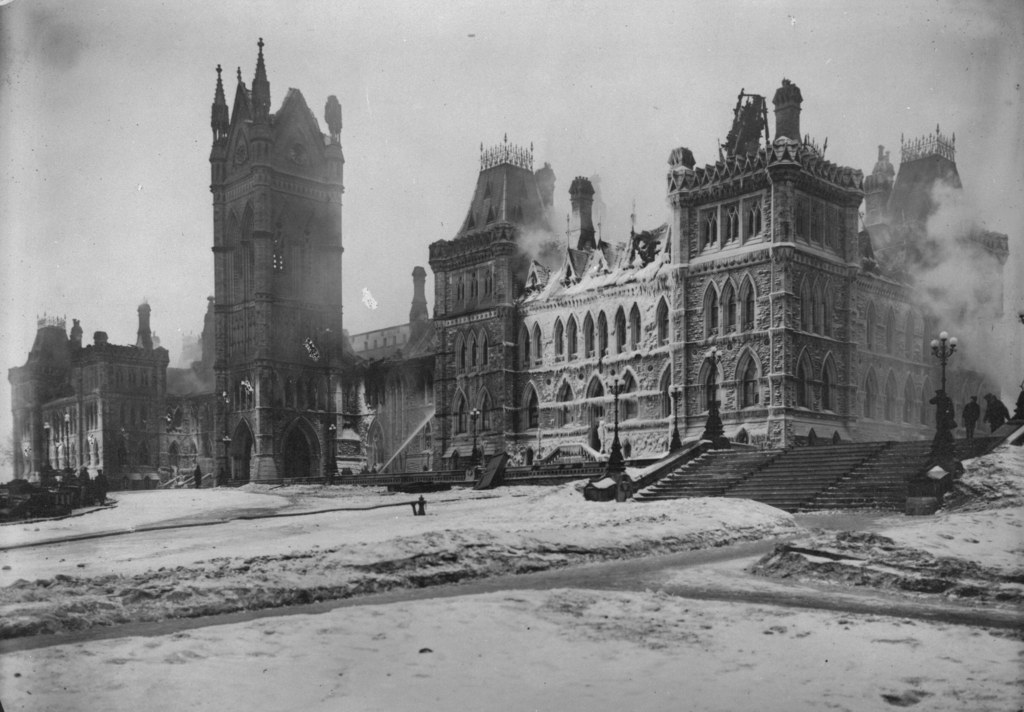
A Royal Commission was called to investigate the fire. Tip after tip about shady German plots fell apart under scrutiny.
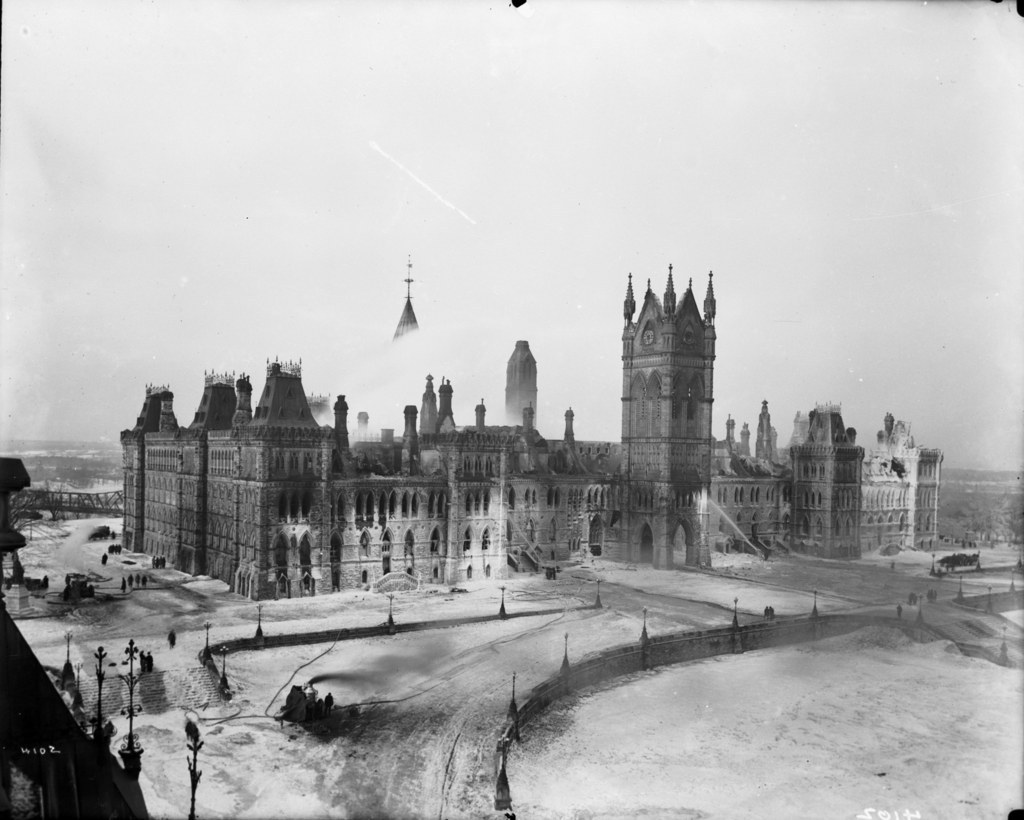
Eventually the commission had to admit, begrudgingly, that it found no evidence of arson whatsoever. Though they noted their "strong suspicion the Germans were behind it in their final report, they ultimately deemed the origins of the fire inconclusive.
Today the cause is commonly attributed to a cigar carelessly discarded in a wastepaper basket. However, no one at the time reported seeing anyone smoking in the room where the fire started.
So no, the Germans weren't to blame. Yet the myth lives on. This year the Canadian Press talked to an American historian who seemingly had no evidence or insight into the event, yet concluded "it’s possible that German agents touched off the fire."
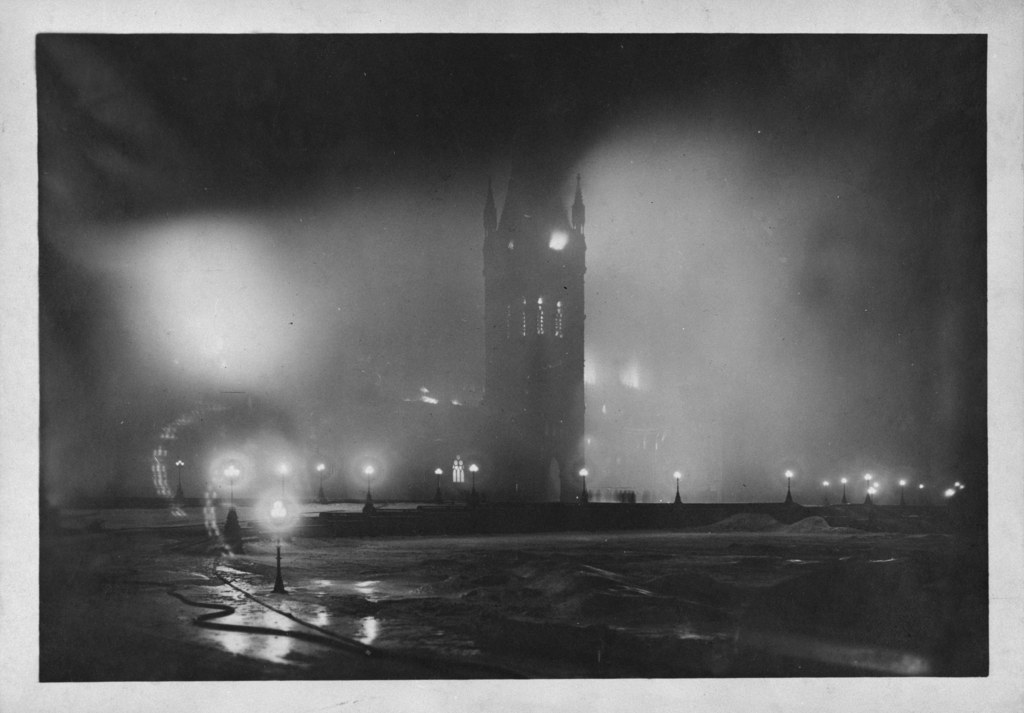
The Canadian Press wrote a separate story declaring the fire an unsolved mystery, but quoting an author who said he believes it was intentionally set. Both stories ran in newspapers across the country.
The National Post published a piece entitled "Sabotage... or smoking?" debating the two popular yet completely unsubstantiated theories.
Even an exhibit in Parliament this week summed up the mystery like this: "The commissioners found the evidence to be inconclusive, though circumstances led them to suspect arson."
"We'll just never know what caused the great fire of 1916..."
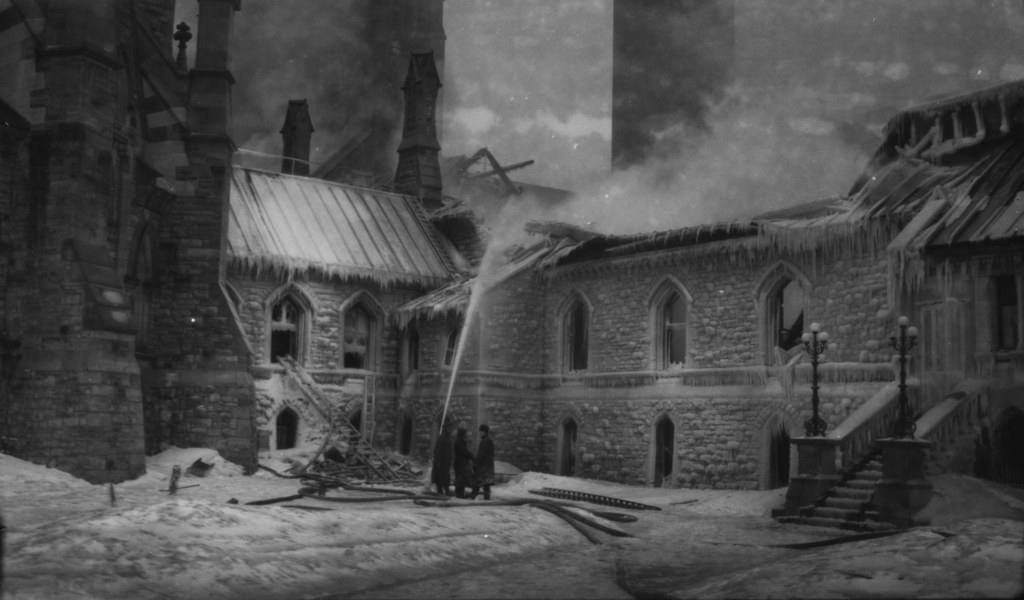
...is a thing people could have once said. We actually figured it out a few years ago.
A 2011 Ottawa Citizen article, reprinted here, took another crack at solving the case with the benefit of a century's worth of advancement in fire investigations.
The Canadian Association of Fire Investigators was called in to apply modern investigation techniques to the historic mystery.
Here's the story of what happened as determined by reporter Tom Korski and Brian Mulligan, a fire investigator with three decades of experience.
The fire started in Parliament's reading room. A person sitting in that room back in 1916 would find themselves surrounded by racks of flammable newspapers against flammable white pine walls that were coated in flammable varnish.
The room had been re-wired a month earlier. Wires were placed in steel tubes along with insulation. The insulation of the day was paper.
According to an eye-witness, Conservative MP Frank Glass, the fire started beneath a desk wired to a lamp. It spread so quickly that authorities believed it had to have been deliberately set.
Not so, said Mulligan. He said it was likely a then-unknown but now well-studied phenomenon called a flashover. In the right conditions, a room can quickly get so hot that anything flammable will burst into flames.
Mulligan's analysis concluded that the electricity wired through the desk likely caused the initial fire, which lead to the flashover, which led to Parliament being lost.

Why didn't the Royal Commission figure this out? Because they never seriously investigated an electrical fire as a possible cause.
Parliament's chief electrician at the time testified it was impossible and the commission was satisfied. They then resumed their with hunt for German arsonists.
We've learned a lot since then. But you wouldn't know it by reading about the fire today.
